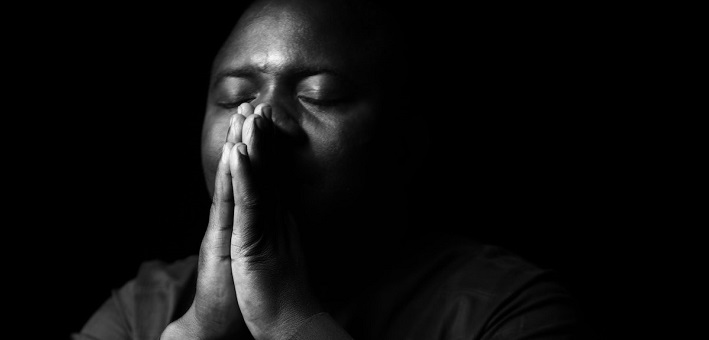Commentary on Jeremiah 31:7-9
This poem opens with a string of commands: “Sing aloud with gladness!” “Raise loud shouts!” “Proclaim, praise, and say!” The tone is marked with the urgency of joy.
This should give us pause. The book of Jeremiah is one of the most devastating, despondent, deprecating books in the Bible. The reader is far more likely to encounter woe in Jeremiah than joy. This text, however, comes in a slim little collection sometimes referred to as “The Book of Consolations.”
The “Book of Consolation” (Jeremiah 30:1–31:40) features oracles, a mix of poetry and prose, that speak of the restoration of Israel (the Northern Kingdom) and Judah (the Southern Kingdom). These particular verses appear to be written after the destruction of Jerusalem (586 BCE), and they offer hope for people living in exile.
The people are a “remnant,” (Hebrew sherit); they are fugitives or refugees. These are the people who remain of what once were the nations of Israel and Judah, now in exile, having been forced to migrate away from their ancestral lands. The poem draws us into the vivid immediacy of divine action:
See, I am going to bring them from the land of the north;
And gather them from the farthest parts of the earth (Jeremiah 31:8a-b).
What was scattered is being brought back. The parallelism of the two lines insists on divine action (bringing / gathering) and the reversal of the geography of displacement: The land of the north is a general way of referring to foreign territory in Mesopotamia. The “farthest parts of the earth” heightens the disparateness of dislocation. Elsewhere in the book their destination is identified as Zion (for example, Jeremiah 50:5), so the hope is a return to Jerusalem.
The next lines describe the refugees:
. . . among them, the blind and the lame,
those with child and those in labor, together;
A great company, they will return here (Jeremiah 31:8).
The Hebrew is condensed: the first two lines are only three words each, and they emphasize vulnerability. These are people with disabilities. Vision and mobility are highlighted, emblems of disabilities that would affect travel. They are people who are vulnerable: women and children. Among women and children, they are those pregnant and in labor, closest to the perils of childbearing and infancy. Together, these are community members with bodily conditions that require social supports, and for whom a long journey by foot would otherwise not be possible.
This band of people with disabilities and vulnerabilities are “a great company (qahal).” Not a threatening military force, not a band of elites, this “company” is comprised of those whose bodies by virtue of sex, status, and features were judged as non-normative. These bodies would have been excluded from the “company” (qahal) of cultic worship or some forms of priestly service (see, for example, 2 Samuel 5:8b; Leviticus 21:17–23; Deuteronomy 23:2). This is a band of the marginal, who are made great by the gathering of divine action.
The reversals continue in the next lines, which in Hebrew are only two words each:
With weeping they shall come,
and with consolations I will lead them back (Jeremiah 31:9a).
Tears imply a visible, bodily vulnerability that can be a manifestation of emotional fragility (interior state) as well as the rituals of mourning (public act). In this case, the emotional fragility that can result from the trauma of political displacement is in the foreground. The turning back of tears is conventional poetic language (see Psalm 30:5; 126:5–6; Isaiah 25:8; Revelation 21:4). Here, though, it is not clear whether weeping will cease; the marks of trauma can persist even through divine compassion and guidance.
The tenderness and advocacy of God is a prominent theme of the last two couplets:
I will let them walk by brooks of water,
in a straight path in which they shall not stumble;
for I have become a father to Israel,
and Ephraim is my firstborn (Jeremiah 31:9b-c).
The social supports needed to provide access for people with disabilities are provided here by God, who will assure a path with water for thirsty travelers and one that is level, on which they will not “stumble.” God provides accommodations for the community. To do so is the outgrowth of care for Israel: “for I have become a father to Israel.”
The metaphor of the divine parent is not altogether common in the texts of the Hebrew Bible, but it is important to Jeremiah and seems to draw on the poetic imagery of Deuteronomy, where God is imagined in the space of a single poem as an eagle, a rock who bears a child, and a “father, who created you” (Deuteronomy 32:11, 18, 6; see also the formula of royal adoption in 2 Samuel 7:14). In this text in Jeremiah, the ultimate sense of divine comfort and hope for the future comes from the nurturing presence of the deity, imagined as the head of an extended kin group, as a father would be in ancient Israel.
The remnant of Israel here is figured as a group all equally vulnerable—they are refugees without the confidence of political security or stable leadership, they are metaphorically and perhaps literally people with disabilities, they are some of them women and others perhaps metaphorically feminized by their military captors. But there is hope in the communal care willingly given to a pregnant woman. The child in the womb or at the breast is the hope of the future for a community in distress.
The poem draws out these kinship metaphors, fluidly imagining the people as a (male) firstborn, as a woman in labor, as one whose cry for joy is also a plea for God’s help. God listens to the cry and has already both heard and answered it, as an attentive parent or lover might, moved to action by affective ties of attachment.


October 24, 2021